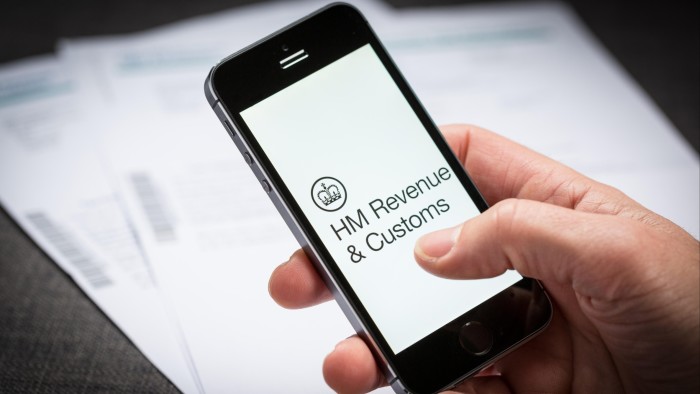Unlock the Editor’s Digest for free
Roula Khalaf, Editor of the FT, selects her favourite stories in this weekly newsletter.
The UK tax authority “sought to degrade” its telephone helplines and “was willing to let them fail” in its push to drive taxpayers towards online services, an influential group of cross-party MPs has concluded.
HM Revenue and Customs had been “too quick to restrict access to its telephone services before ensuring replacement digital services are fully in place”, the House of Commons public accounts committee said on Wednesday.
“All of [HMRC’s] customers have a legal obligation to pay their taxes so it has a responsibility to engage with them,” said Sir Geoffrey Clifton-Brown, chair of the public accounts committee. “If I were a teacher marking HMRC’s homework, I’d give it a ‘could do better’ or a ‘needs improvement.’”
The tax authority began to shift to using digital services in 2010 with the goal of providing online support to customers, freeing up phone lines for vulnerable individuals and those with complex needs.
But demand for its helplines has remained high. A report released last May by the National Audit Office spending watchdog found that taxpayers jointly spent the equivalent of nearly 800 years on hold to HMRC in 2022-23 — more than double the number in 2019-20.
Sir Jim Harra, HMRC chief executive, said the committee’s claims were “completely baseless”. The tax authority had cut call wait times to around 11 minutes compared to around 28 minutes in April 2024.
He added: “We will always be there to answer the phone for those who need extra help. At the same time, more than 80 per cent of customers are satisfied with our digital services.”
The MPs said in their report that HMRC should “reinstate a call waiting time target as a key performance measure” and “ensure it gives customers accurate estimates of call waiting times in real time”.
The report urged the tax authority to scrap its policy of cutting off phone calls when a customer has been on hold for 70 minutes. In 2023-24, HMRC terminated over 43,000 calls in this manner, up sixfold from the previous year, according to the NAO.
In March 2024, HMRC halted plans to dramatically cut back its helplines with just two days’ notice after a backlash from professional bodies.
The MPs also called on HMRC to take further action to reduce the money owed to the agency. The tax authority’s debt balance ballooned to £43.9bn in March 2023, up from around £15bn in the five years preceding the pandemic.
The government announced £303mn in additional funding in 2023-24 to help HMRC manage tax debts, but the balance had fallen by just 2 per cent — or £900mn — by March 2024.



